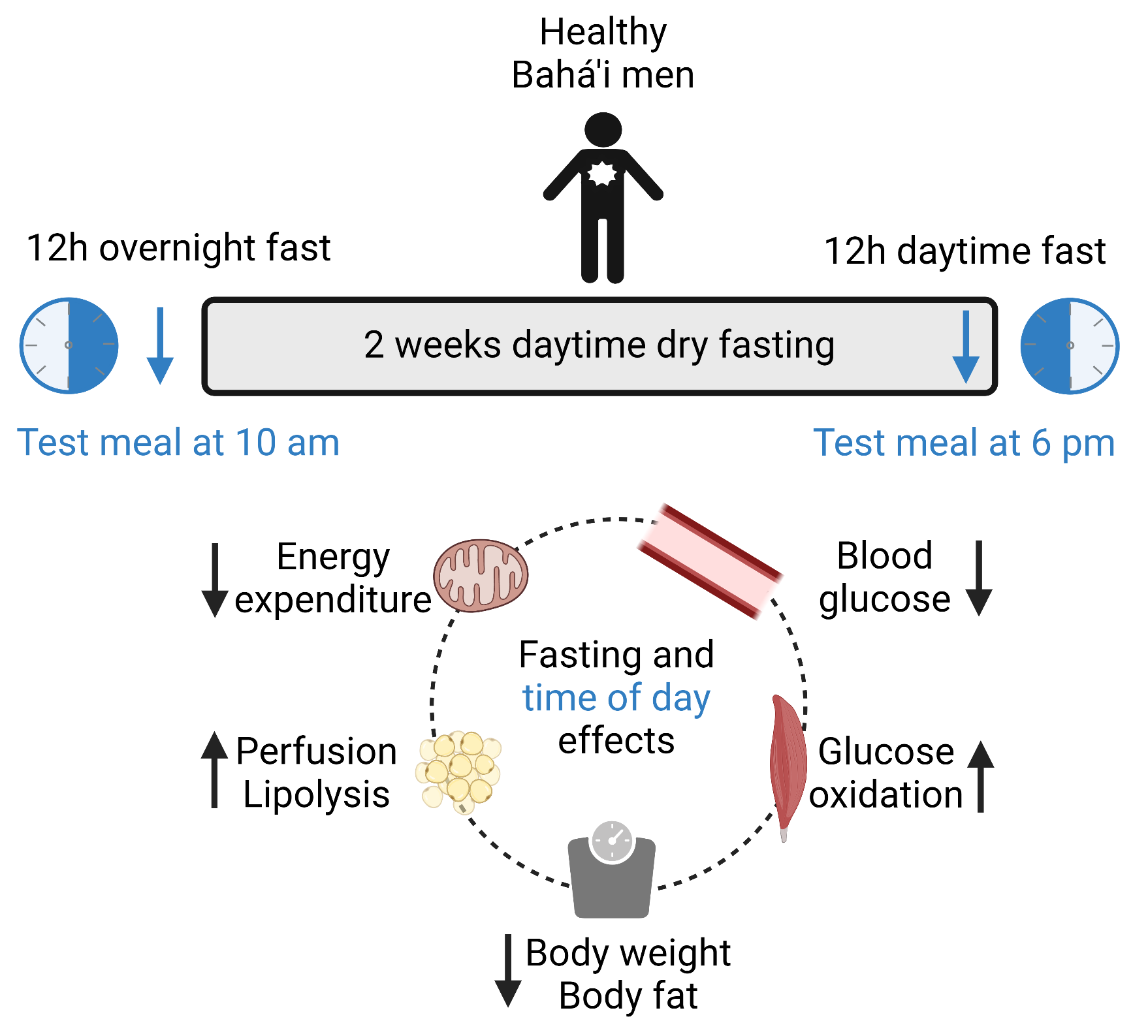Each year in March, adherents of the Bahá’í faith abstain from eating and drinking from sunrise to sunset for 19 days. Thus, Bahá’í fasting (BF) can be considered as a form of daytime dry fasting. We tested if BF decreases energy expenditure after a meal and improves anthropometric measures, and systemic and tissue-level metabolic parameters. This was a self-controlled cohort study with 11 healthy men. We measured anthropometric parameters, metabolic markers in venous blood, and pre- and postprandial energy metabolism at systemic (indirect calorimetry) and tissue (adipose tissue and skeletal muscle microdialysis) level, both before and during BF. During BF, we found reduced body weight, body mass index, body fat and blood glucose. Postprandial increase in energy expenditure was lower, diet-induced thermogenesis tended to be lower. In adipose tissue, perfusion, glucose supply and lipolysis were increased. In skeletal muscle, tissue perfusion did not change. Glucose supply and lipolysis were decreased. Glucose oxidation was increased, indicating an improved insulin sensitivity. BF may be a promising approach to losing weight and improving metabolism and health. However, outside the context of religiously-motivated fasting, skipping a meal rather in the evening (dinner cancelling) might be recommended, as metabolism appears to be reduced in the evening.

